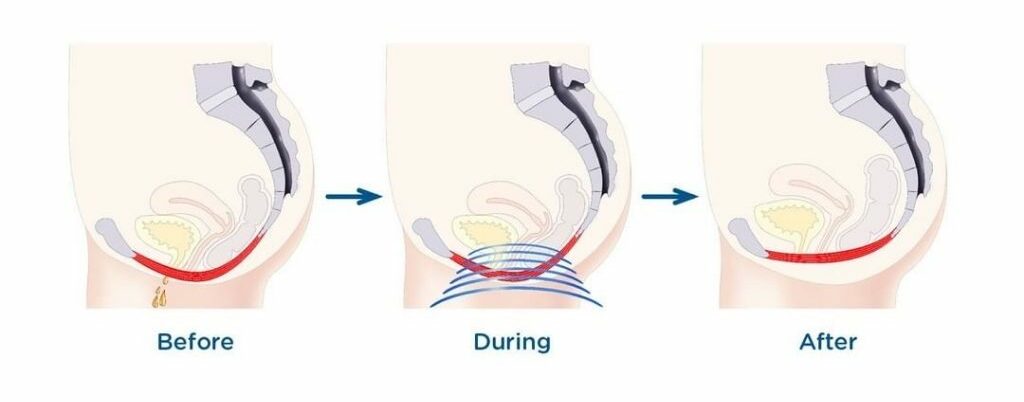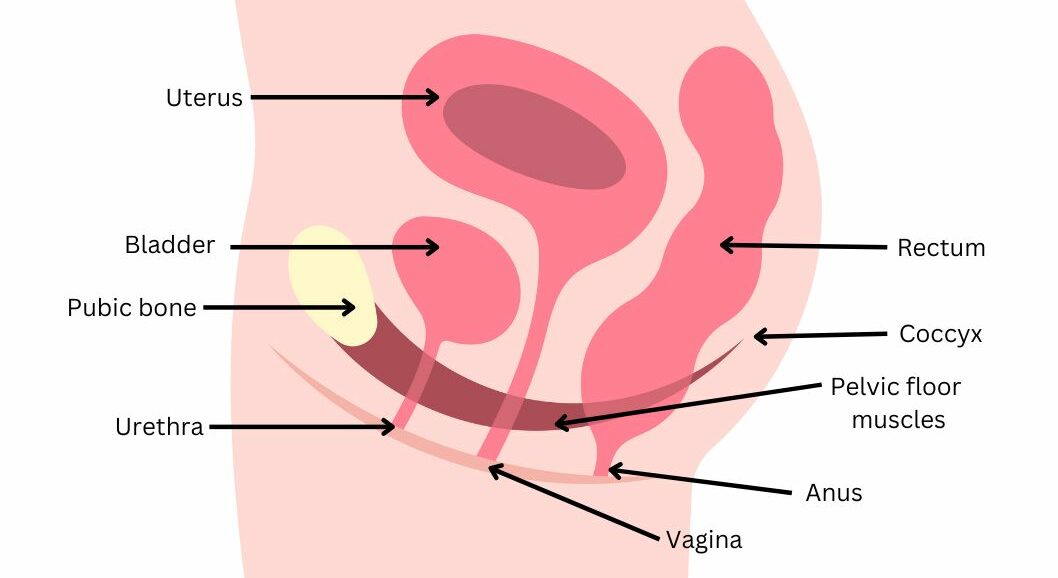Pelvic Floor Therapy in Lincoln
The EMS-Chair
Pelvic Floor Muscles
Urinary incontinence, affecting 3 to 6 million individuals in the UK, predominantly impacts women, with more than 80% experiencing its effects. Pelvic floor muscles, crucial for bladder and organ support, can weaken due to factors like age, childbirth, or menopause, leading to conditions such as stress or urge incontinence. Stress incontinence, when urine leaks from the bladder when coughing or sneezing, results from the weakening of the pelvic floor muscles and muscles at the neck of the bladder, caused by ageing and vaginal childbirth. Urge incontinence is caused by irregular contraction of the muscles in the wall of the bladder, resulting in the urge to pee even when the bladder is empty. Weakened pelvic floor muscles exacerbate the problem.
The EMS chair delivers focused electromagnetic energy, prompting pelvic floor muscles to contract and relax thousands of times in a single session. Each 30-minute appointment provides the equivalent of 11,000 kegel exercises, contributing to muscle strength without the need for strenuous workouts. Clients experience no downtime and can sit fully clothed throughout the pain-free procedure.

What are the Benefits of EMS Therapy?
Regain neuromuscular bladder control as pelvic floor muscles repair and strengthen.
Convenient, non-invasive, and no downtime; clients remain seated for the entire appointment.
Holistic, utilising the body’s natural ability to heal and repair.
Suitable for both men and women, addressing intimate health issues effectively.
Time-efficient compared to traditional kegel exercises.
Is This Treatment Suitable for Everyone?
While EMS-Chair therapy is generally suitable, certain contraindications include cardiac devices, metal implants, drug pumps, anti-coagulants, pregnancy, cardiac disorders, and recent surgeries. Notably, women are advised against treatment during menstruation due to potential muscle contraction in the uterus.
Pelvic floor therapy is also suitable for men whose weakened pelvic floor muscles can also contribute to urinary incontinence and intimate health issues.


